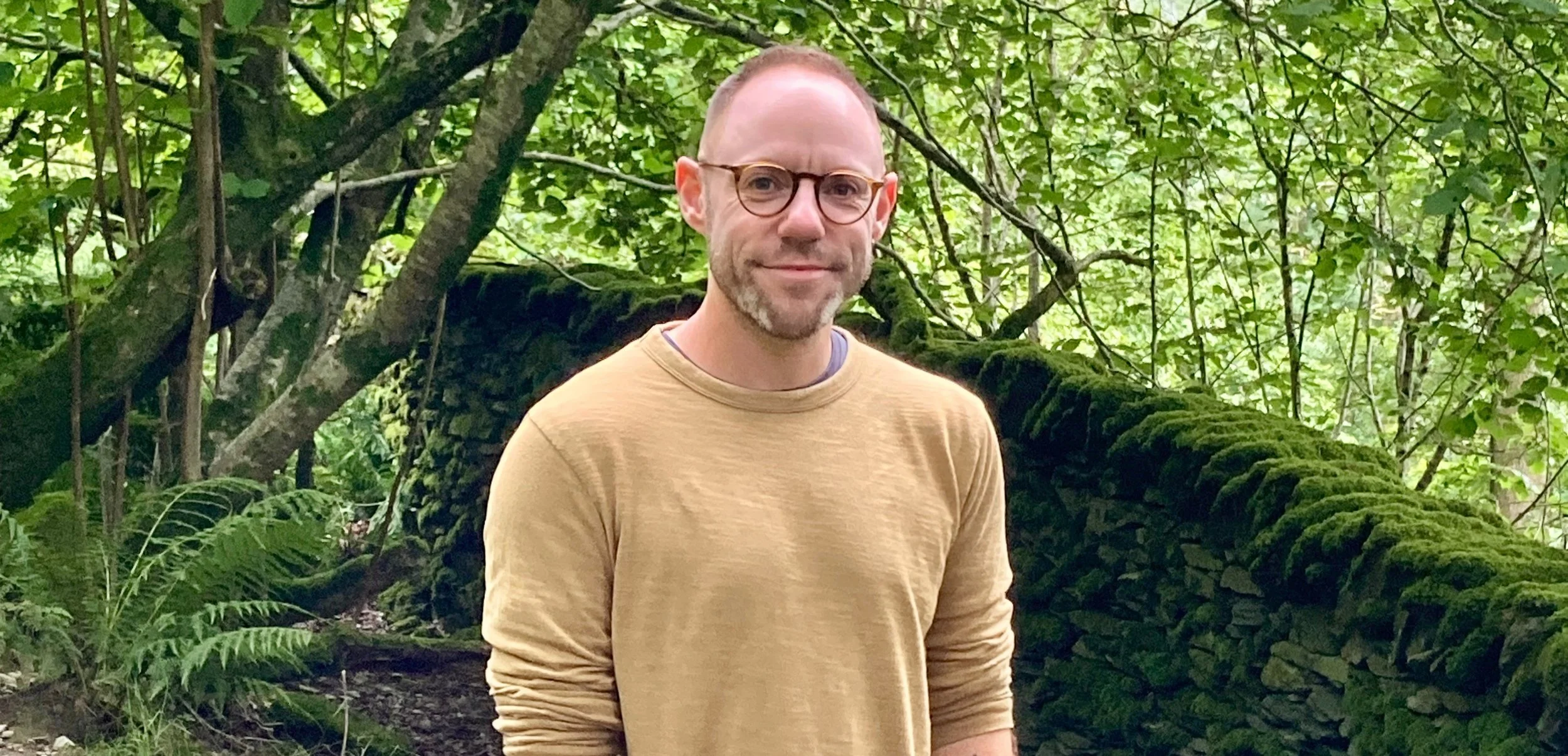Ellis Morgan
Therapist & Clinical Supervisor
Hi, I’m Ellis. Here’s a little more about me and the concept behind Buddha Nurture.
What’s the therapy background you bring to Buddha Nurture?
I have been practicing as a therapist for over 15 years. My core training was in person-centred therapy, which still forms the heart of my approach: you, and only you, know what is right for you. My role is to support your autonomy and, through our exploration together, help you find your own shape to confidently inhabit.
I have combined this approach with my Buddhist learning and my spiritual care training to offer an integrated form of therapy. This approach offers space for exploration together with Buddhist-informed ways of understanding experience and perspectives on life.
I am also a qualified and experienced clinical supervisor which means that I support the work of other therapists. I work internationally with therapy clients, and within the UK as a supervisor. I’m Professionally Accredited by the National Counselling and Psychotherapy Society.
What is your Buddhism background?
My Buddhist perspective is ecumenical - by that, I mean that what I find to be most helpful in my life are the philosophies that sit at the core of all Buddhist traditions.
I agree with Jack Kornfield when he writes that underneath the many different religious traditions that have grown around Buddhism in the last three thousand years, at the core is one Buddhism. And I agree with Stephen Batchelor that this core of Buddhist thinking can serve as religion, spirituality or as secular philosophy. I am very supportive of all ways of engaging with Buddhism and if you think of yourself as a Buddhist my aim will be to meet you in the way that you engage with it.
Whether you bring a religious, spiritual or secular perspective, my view is that investing in Buddhist ideas always takes a leap of faith. Whenever we invest hope and trust in any kind of system that might help us - including any type of therapy - we have to take an initial leap of faith. Though we may have some evidence that what we are investing in has been helpful for others, we cannot know if it will work for us until we try it.
I took my initial leap of faith with Buddhism around 20 years ago and have been learning about its teachings ever since. My primary influence for the whole of that time has been the US based teacher Gil Frondsal, within the Insight Meditation Tradition (Vipassana). I am also influenced and inspired Sharon Salzburg, Jack Kornfield, Joseph Goldstein and Stephen Batchelor.
I am currently undertaking a year long training in Buddhist Spiritual Care Giving, under the tutorship of Gil Frondsal and Vanessa Able at the Sati Centre in California. This training is based on the principles of Buddhist Chaplaincy and is a profound inspiration to me.
What inspired the concept of Buddha Nurture?
At the heart of my Spiritual Care Training is the Buddhist concept of Anukampa - a pali word that often gets translated as ‘Compassion’, but can also be translated as the more simple and humble word ‘care’.
In the early Buddhist suttas it is said that what motivated the Buddha to teach the Dharma - and to keep teaching until his death in his eighties was his ‘anukampa’ for people and the world.
My training has prompted me to take the concept of care very seriously - what would happen if we orientated our lives around the concept of care - care for ourselves and care for others? In the Buddhist teaching that I follow, to become liberated or free from suffering is synonymous with uncovering our capacity for this kind of deep care.
Living from care or Anukampa takes an alignment of our lives with our deepest values. This in turn takes a great deal of insight into our predicaments as human beings. There is a beautiful simplicity to this ‘anukampa-first’ perspective, but held within it is also a very real appreciation for how challenging it is to overcome the conditioning that can constantly pull us away from this. So as part of our therapy together I will be listening to how we might attend to your values with care, and see how we can bring a greater amount of care into your life.
In short, the concept of Buddha Nurture is really about seeing how we might centralise the role of Anukampa, or care, in our lives - as we attend to this human situation, look at the struggles we need to accept and sow the seeds of greater satisfaction. It is applied Buddhism philosophy at a simple yet profound level.

